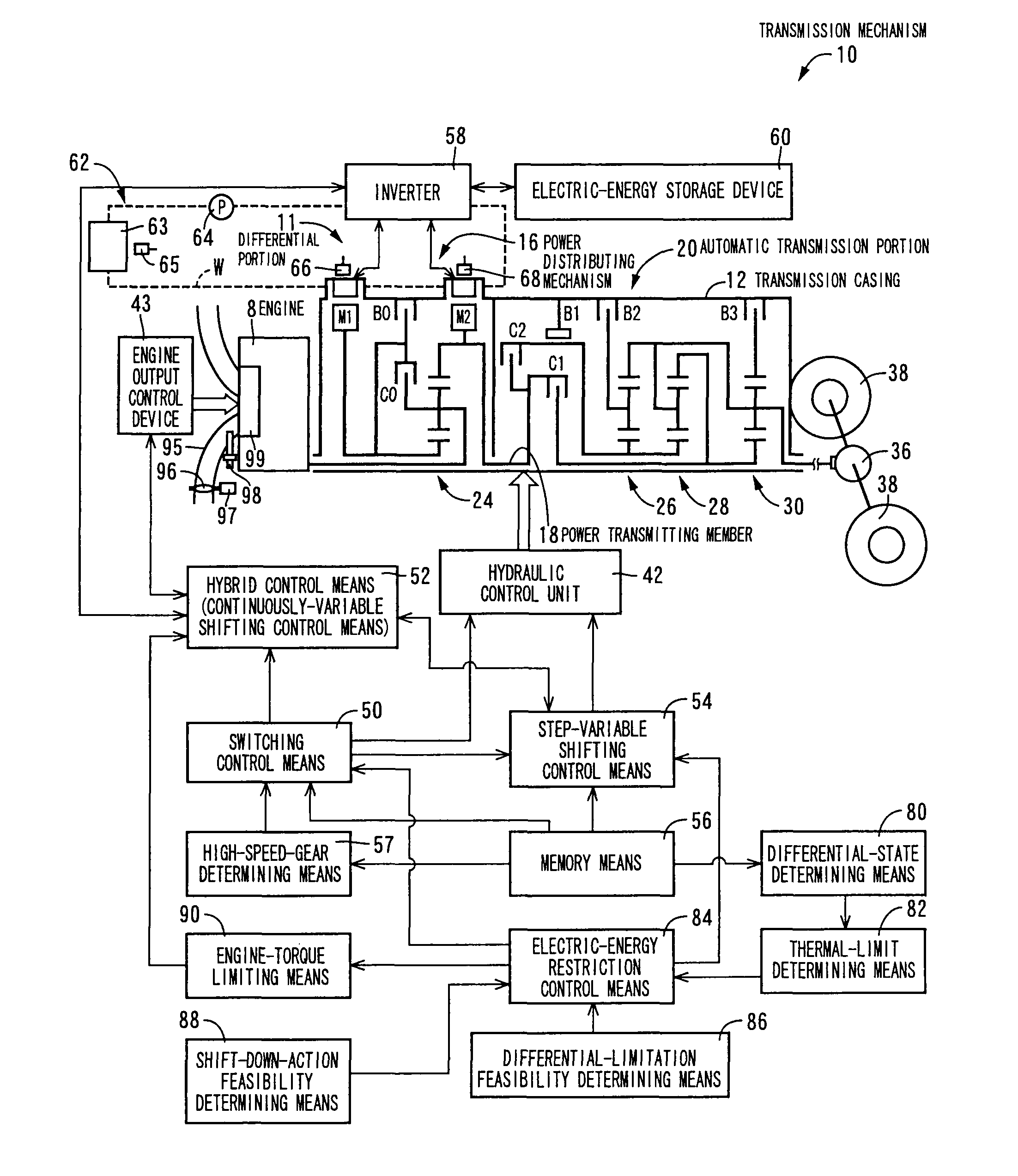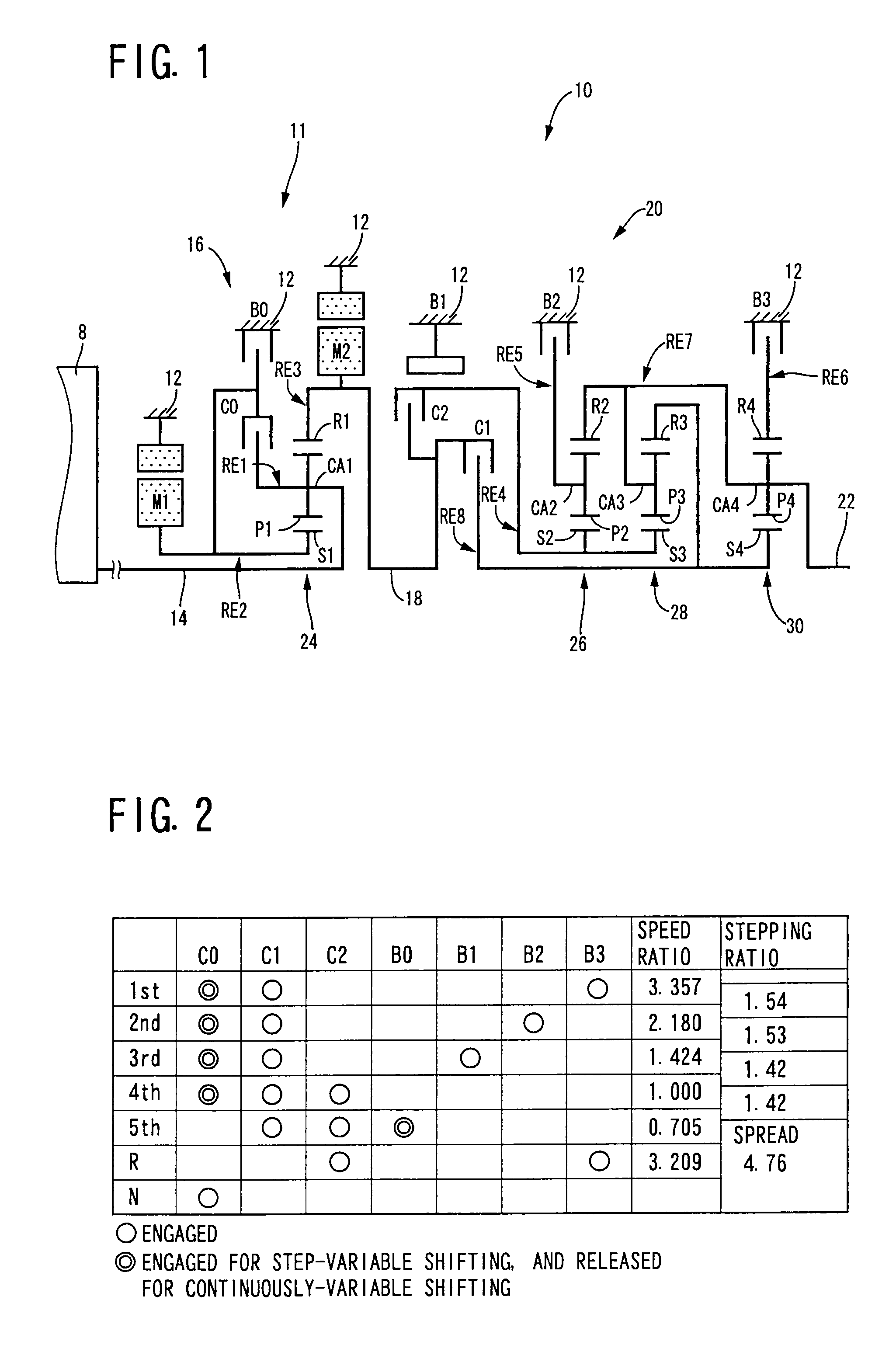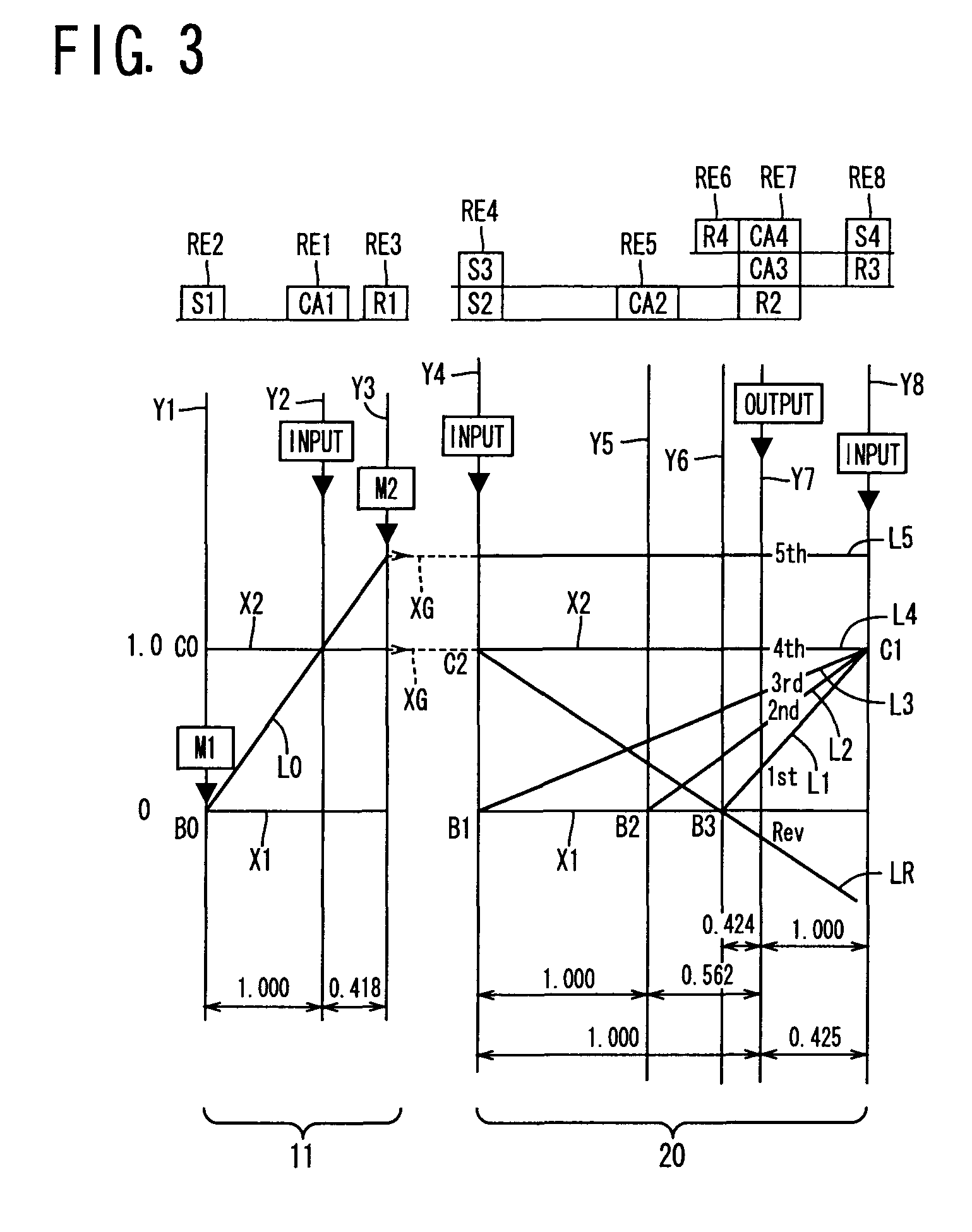Controller of driver for vehicle
a controller and vehicle technology, applied in the direction of batteries/cells, propulsion, instruments, etc., can solve the problems of inability to provide a power transmission mechanism, hybrid vehicle drive system has a risk of deterioration of fuel economy, and the temperature is considerable, so as to achieve the effect of simple construction, simple construction, and continuous-variable transmission portion operating efficiency
- Summary
- Abstract
- Description
- Claims
- Application Information
AI Technical Summary
Benefits of technology
Problems solved by technology
Method used
Image
Examples
embodiment 1
Referring to the schematic view of FIG. 1, there is shown a transmission mechanism 10 constituting a part of a drive system for a hybrid vehicle, which drive system is controlled by a control apparatus according to one embodiment of this invention. In FIG. 1, the transmission mechanism 10 includes: an input rotary member in the form of an input shaft 14; a continuously-variable transmission portion in the form of a differential portion 11 connected to the input shaft 14 either directly, or indirectly via a pulsation absorbing damper (vibration damping device) not shown; a transmission portion functioning in the form of an automatic transmission portion 20 disposed in a power transmitting path between the differential portion 11 and drive wheels 38 of the vehicle, and connected in series via a power transmitting member 18 (power transmitting shaft) to the differential portion 11 and the drive wheels 38; and an output rotary member in the form of an output shaft 22 connected to the au...
embodiment 2
In the preceding embodiment, the thermal-limit determining means 82 is arranged to make the determination as to whether the amount of the electric energy transmitted through the electric path has increased to the thermal limit, by determining whether at least one of the first-electric-motor temperature TEMPM1 and the second-electric-motor temperature TEMPM2 is higher than the predetermined upper limit TEMP1. In the present embodiment, however, the thermal-limit determining means 82 is arranged to make the above-indicated determination, by estimating a value of at least one of the first-electric-motor temperature TEMPM1 and second-electric-motor temperature TEMPM2, (hereinafter collectively referred to as “electric motor temperature TEMPM”) and determining whether the estimated value is higher than the predetermined upper limit TEMP1.
FIG. 12 indicates an example of a change of the electric motor temperature TEMPM. As indicated in FIG. 12, the thermal-limit determining means 82 is con...
embodiment 3
FIG. 14 shows an arrangement of a transmission mechanism 70 in another embodiment of this invention, and FIG. 15 a table indicating a relationship between the gear positions of the transmission mechanism 70 and different combinations of engaged states of the hydraulically operated frictional coupling devices for respectively establishing those gear positions, while FIG. 16 is a collinear chart for explaining a shifting operation of the transmission mechanism 70.
The transmission mechanism 70 includes the differential portion 11 having the first electric motor M1, power distributing mechanism 16 and second electric motor M2, as in the preceding embodiment. The transmission mechanism 70 further includes an automatic transmission portion 72 having three forward drive positions. The automatic transmission portion 72 is disposed between the differential portion 11 and the output shaft 22 and is connected in series to the differential portion 11 and output shaft 22 through the power transm...
PUM
 Login to View More
Login to View More Abstract
Description
Claims
Application Information
 Login to View More
Login to View More - R&D
- Intellectual Property
- Life Sciences
- Materials
- Tech Scout
- Unparalleled Data Quality
- Higher Quality Content
- 60% Fewer Hallucinations
Browse by: Latest US Patents, China's latest patents, Technical Efficacy Thesaurus, Application Domain, Technology Topic, Popular Technical Reports.
© 2025 PatSnap. All rights reserved.Legal|Privacy policy|Modern Slavery Act Transparency Statement|Sitemap|About US| Contact US: help@patsnap.com



